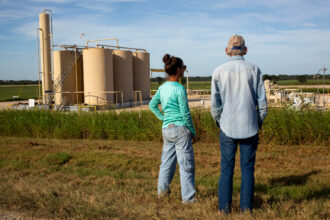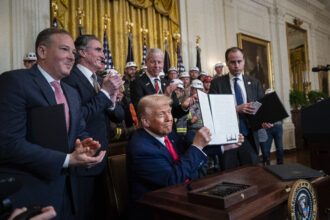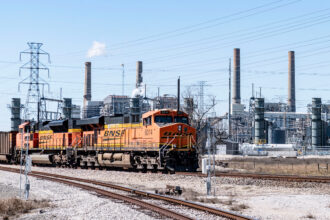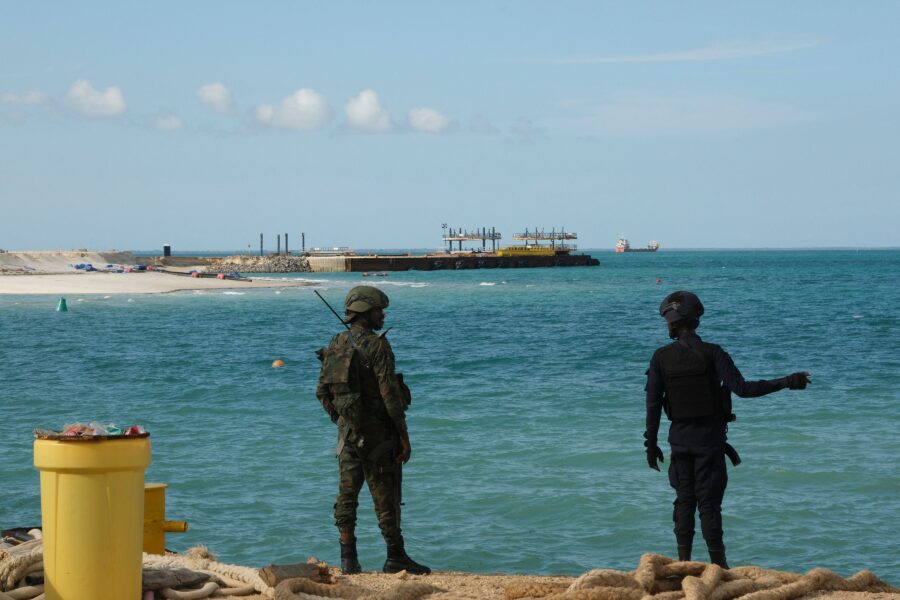President Barack Obama said on Tuesday health and economic factors would be taken into account when he decides whether to approve TransCanada Corp’s Canada-to-Texas Keystone XL pipeline proposal.
Speaking in a television interview, Obama said the State Department would give him a report on the issue “over the next several months.”
That could indicate a delay in the decision, which the State Department had previously targeted for the end of this year.
Obama’s inclinations about the pipeline are being closely watched by environmentalists, who oppose the project, and proponents, who say it would create jobs.
“My general attitude is, what’s best for the American people? What’s best for our economy both short term and long term? But also what’s best for the health of the American people?” Obama said in an interview with Nebraska television station KETV, discussing the criteria he would judge when making a final decision.
The White House has made clear that the State Department is handling the review process, but activists believe the final call will be made by the White House, and Obama’s discussion of the criteria indicated he would have the final say.
“We need to make sure that we have energy security and aren’t just relying on Middle East sources, but there’s a way of doing that and still making sure that the health and safety of the American people and folks in Nebraska are protected,” Obama said.
“And that’s how I’ll be measuring these recommendations when they come to me.”
Opposition is crystallizing in Nebraska, where the pipe would cross the Ogallala Aquifer and the Sand Hills region, home to whooping cranes and other endangered species.
Obama, whose re-election in 2012 depends largely on his ability to bring down high U.S. unemployment, said the potential for job creation would factor in to the decision, but health and environmental factors would also weigh.
“I think folks in Nebraska, like all across the country, aren’t going to say to themselves, ‘we’ll take a few thousand jobs’ if it means that our kids are potentially drinking water that would damage their health or if … rich land that is so important to agriculture in Nebraska ends up being adversely affected,” he said.
About This Story
Perhaps you noticed: This story, like all the news we publish, is free to read. That’s because Inside Climate News is a 501c3 nonprofit organization. We do not charge a subscription fee, lock our news behind a paywall, or clutter our website with ads. We make our news on climate and the environment freely available to you and anyone who wants it.
That’s not all. We also share our news for free with scores of other media organizations around the country. Many of them can’t afford to do environmental journalism of their own. We’ve built bureaus from coast to coast to report local stories, collaborate with local newsrooms and co-publish articles so that this vital work is shared as widely as possible.
Two of us launched ICN in 2007. Six years later we earned a Pulitzer Prize for National Reporting, and now we run the oldest and largest dedicated climate newsroom in the nation. We tell the story in all its complexity. We hold polluters accountable. We expose environmental injustice. We debunk misinformation. We scrutinize solutions and inspire action.
Donations from readers like you fund every aspect of what we do. If you don’t already, will you support our ongoing work, our reporting on the biggest crisis facing our planet, and help us reach even more readers in more places?
Please take a moment to make a tax-deductible donation. Every one of them makes a difference.
Thank you,












